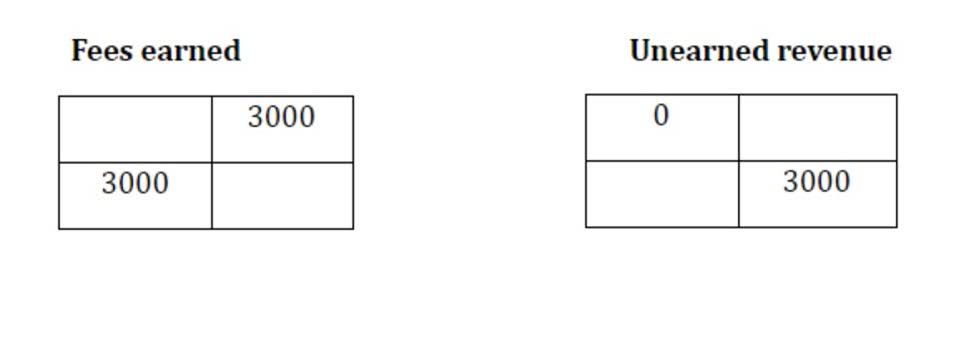Accounting for Medical Practices: Bookkeeping Practice for Healthcare Accounting

You successfully graduated medical school, finished your residency, passed your board exams – and now have your own practice. Part of running your own practice includes some managerial roles such as managing staff, hiring the correct consultants and building a team of trusted advisors. Reviewing your practice’s financial information is not something you may have come across during medical school, and it’s not something that can easily be self-taught. Once an insurance company denies or rejects a claim, it’s back on your hospital to handle collections. You need to carefully manage patient communications to ensure you don’t lose money for services rendered.
- Accounting in health care follows generally accepted accounting principles (GAAP).
- If you cannot offer the proper services, they will go elsewhere for their healthcare needs.
- We gave Intacct a score of 8.7 for its simple interface and real-time, multi-dimensional reporting capabilities.
- If you are a healthcare facility, medical office, or hospital needing accounting, payroll, or tax help, we are there for you.
- As for integrations, Kareo shines with its compatibility with numerous electronic health record (EHR) systems, patient portals, and practice management platforms, creating a unified healthcare experience.
- However, this information can become much more valuable when you’re able to gain insights and additional information from it.
A Quick and Easy-to-Understand Accounting Resource for Medical Professionals

And if you’re starting your own medical practice, this can become a bit stressful. As a physician or other medical worker, your primary focus is likely to be on patient care — not the tedious details afterward. For-profit and nonprofit healthcare institutions usually host fundraisers to raise money for specific departments or causes within the hospital. With accurate donation records, your hospital will know when to plan future fundraising efforts. Medical billing deadlines vary across QuickBooks states, typically falling within a 30- to 90-day window from the date of service. Healthcare organizations should review state and payer guidelines to meet these deadlines accurately.

Why Is Accounting Important in Healthcare?

Errors in coding can lead to claim rejections or denials, affecting the revenue cycle. Medical practice accounting is different from accounting for other types of businesses. You don’t just need to account for patient payments—you also need to deal with insurance companies and government-backed programs like Medicare and Medicaid. This method helps health care facilities obtain a more accurate picture of the transactions that may occur within a given time frame, like a quarter or fiscal year. This accuracy is the reason why large health care facilities will use this method in their accounting practice.

The Role of Financial Statements in Medical Practice Accounting
However, this method is normally not a good fit for health care facilities medical office accounting because payments can take months to be finalized – and sometimes, they may not ever be finalized. The ongoing shift of the health care system away from fee-for-service compensation toward value-based reimbursement means that holding providers accountable for cost and quality is more important than ever. Establishing robust internal controls helps in preventing fraud, ensuring accurate financial reporting, and maintaining the integrity of financial data. This includes segregation of duties, regular audits, and implementing checks and balances in financial processes. The accounts receivable turnover ratio measures how quickly the practice collects payments from patients and insurance companies. NetSuite ERP is a cloud ERP system for growth companies that are generally midsized or larger.

The Need for Custom Accounting Software in Healthcare
- You could be in the middle of a boardroom meeting and pull up accurate, real-time information from the general ledger.
- Imagine that you’re working in a hospital and a patient comes in with a gash on her leg.
- Medical practices need to develop strategies to expedite payments, such as offering various payment options, optimizing billing processes, and implementing effective follow-up procedures for overdue accounts.
- For example, an in-house bookkeeper might make sense, but you’re probably better off using an outsourced accounting service for your more sophisticated financial needs.
- As a result, it’s usually a mistake to settle for a generic CPA’s medical practice accounting services.
- Another item that most people forget to consider in healthcare accounting is the repayments of loans.
- For example, medical coders make mistakes, patients fail to pay their bills, and insurance companies reject claims.
Many health care providers try to handle their books on their own using QuickBooks or another DIYaccounting software solution. While this is less expensive than hiring a CPA firm, it often costs more in the long term. Physicians usually aren’t accounting experts, and it’s easy to make a mess of your books and overlook tax planning strategies that can save you money. With cash basis accounting, revenue is recognized when you receive payments, and expenses are recorded when you pay them. Cash accounting, on the other hand, only records revenue and expenses when the transaction has been finalized. It’s a simple, straightforward method, and it can be sufficient in certain industries with less complex accounting requirements.
- Part of running your own practice includes some managerial roles such as managing staff, hiring the correct consultants and building a team of trusted advisors.
- These include physician’s offices, hospitals, and other healthcare facilities such as nursing homes or assisted living.
- The income statement, also known as the profit and loss statement, provides an overview of the practice’s revenues and expenses over a specific period.
- Here we share more about what entry-level roles with healthcare accounting functions do, and where they work.
Uloženo dne 13.1.2023.
Rubrika Bookkeeping.
Komentářů: 0.


